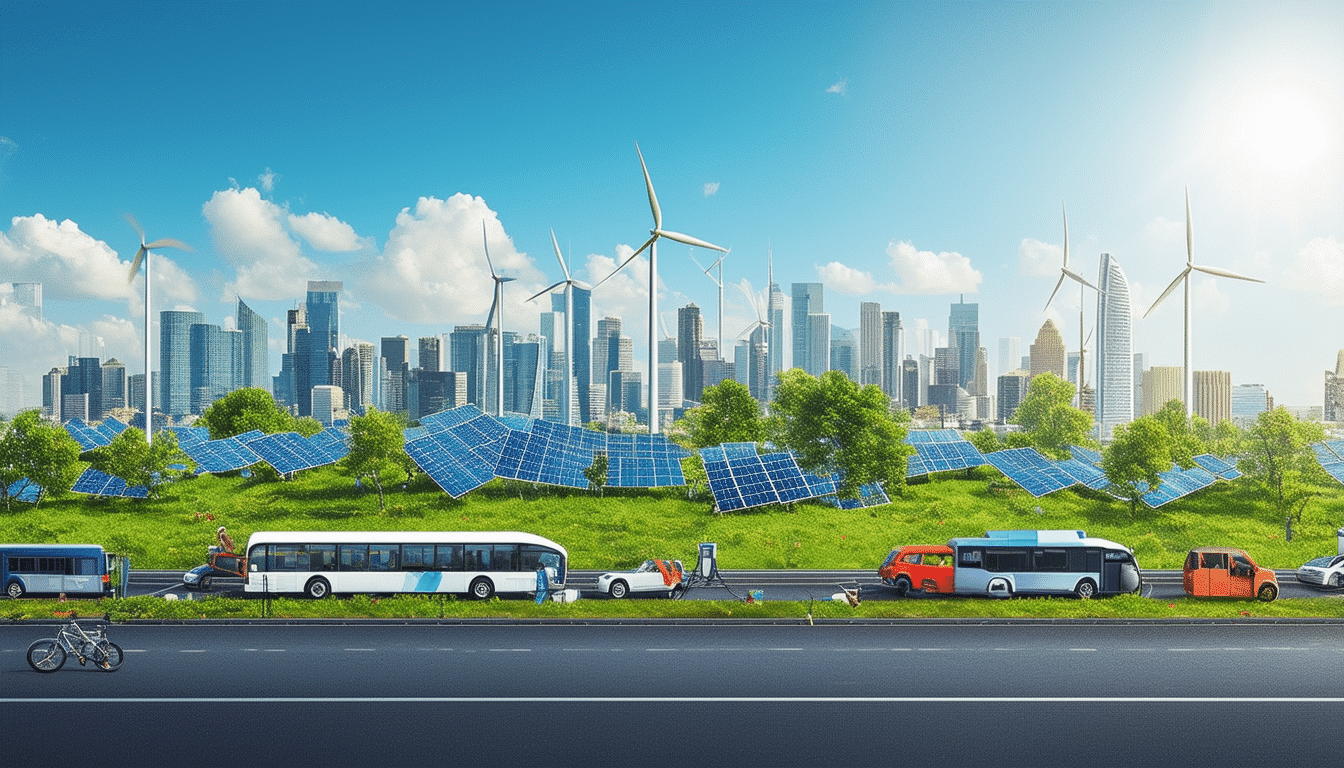Perspectives on global fuel consumption reduction

In an increasingly sustainability-conscious world, the prospects for global fuel consumption reduction present both a challenge and an opportunity. The growing reliance on fossil fuels, combined with the global energy crisis, has driven governments and organizations to rethink their energy strategies. It is expected that by 2050, the share of sustainable fuels in the energy demand for transportation may reach significant figures, highlighting the urgent need to adopt eco-friendly practices and promote sustainable mobility. This approach aims to mitigate environmental impact, promote the use of renewable energies, and reduce dependence on hydrocarbons.
The analysis of global fuel consumption reduction reflects a path towards sustainability, where the transition to cleaner and more efficient energy sources becomes a priority. This article explores the trends and strategies that can contribute to decreasing reliance on fossil fuels, addressing everything from the use of innovative technologies to the importance of government policies.
The current context of fossil fuel consumption
The global energy situation has been characterized by an increasing dependence on fossil fuels, despite the evident volatility of prices and the pressure to reduce greenhouse gas emissions. Since 2022, prices for these fuels have decreased, but the market remains unstable. Global demand for petroleum products grew by 2.4% in 2023, indicating the need to adopt effective measures to curb this growth.
Initiatives for reducing energy consumption
Governments around the world are implementing strategies to diversify energy sources and promote the use of renewable energies. For example, the European Union is actively working to reduce its energy demand and increase green energy production. It is estimated that, by 2050, the percentage of sustainable fuels in energy demand for transportation could be between 7 and 37 percent, depending on the adoption of appropriate technologies and policies.
The role of technology in fuel reduction
Technology plays a crucial role in reducing fuel consumption. Innovations in electric vehicles, the implementation of fleet management systems, and the use of applications to optimize routes are measures gaining traction. These solutions not only contribute to reduced fuel expenditure but also help improve overall energy efficiency, which is essential for mitigating environmental impact.
Sustainable practices in various sectors
The agricultural sector, for example, has begun to incorporate sustainable practices that help reduce fuel expenditure. Strategies such as using efficient machinery and implementing energy-saving cultivation techniques are resulting in significant savings. Only through a commitment to sustainability can real and lasting change be achieved.
Public policies and their impact on fuel consumption
To achieve a significant reduction in fossil fuel consumption, it is imperative for governments to establish urgent public policies that promote the energy transition. Gradually phasing out subsidies for fossil fuels could reduce greenhouse gas emissions by up to 10%. This is crucial to avoid catastrophic global warming and work towards a more sustainable future.
Community-level adaptations in consumption
At the community level, awareness and education about fuel consumption reduction are essential. Measures such as carpooling, the use of bicycles as an alternative transportation means, and promoting changes in driving habits are examples that can positively impact global fuel consumption. Local initiatives can contribute to a significant cultural shift in consumption.
Conclusion
In summary, the prospects for fuel consumption reduction at a global level are encouraging if the right strategies are implemented and collaboration among governments, businesses, and communities is fostered. We are at a crucial point where collective action can shape a cleaner and more sustainable energy future.
For more information on how government policies are affecting the reduction of subsidies for electric vehicles, visit this link. Practical strategies for fuel savings in agriculture can also be found in this article. Additionally, to learn more about how to reduce energy costs in companies, access this link. Finally, it is important not to underestimate the role of regular maintenance in reducing fuel expenditures, as highlighted in this article. For updates on fuel prices, you can visit this resource.
The reduction of fuel consumption at a global level presents an urgent necessity in light of current environmental challenges. With global warming as one of the primary concerns, the transition to cleaner and more sustainable energy sources has become imperative. Studies suggest that in order to combat climate change, it is crucial to decrease reliance on fossil fuels and diversify energy systems. To achieve this, it is essential for governments and organizations to implement effective policies that promote the use of renewable energies and more efficient technologies.
One of the keys to reducing fuel consumption is the mass adoption of electric vehicles and the development of infrastructures that support this change. At the same time, promoting the use of biofuels and other sustainable fuels can help mitigate greenhouse gas emissions. For instance, the use of biodiesel and ethanol has proven effective in reducing carbon footprints in transportation.
Moreover, educating and raising awareness among citizens is fundamental. Initiatives that promote efficient fuel use, such as optimizing driving styles and the importance of regular vehicle maintenance, can significantly reduce consumption. Businesses and communities must collaborate to establish more sustainable practices that result in both economic and environmental savings.
Finally, government policies play a crucial role. Measures such as reducing subsidies for fossil fuels and imposing energy efficiency standards can accelerate the transition to more sustainable energy systems. Only through a joint and multidisciplinary effort can global goals for fuel consumption reduction be met.





